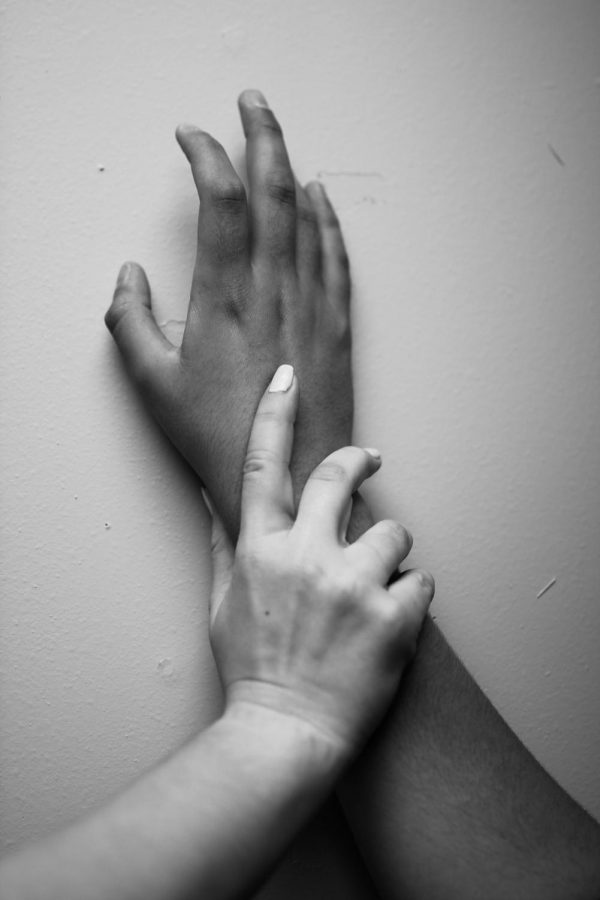Sexual Assault: Reporting and timeliness
28% of male rape victims were first raped when they were 10 years old or younger
Reporting and timeliness
A question frequently brought up over the Kavanaugh case was over the time it took for Ford to come forward. People took to Twitter with #WhyIDidntReport, discussing the reasons why they never reported their sexual assault cases or delayed doing so.
“I feel like going outright and telling everyone that you were sexually assaulted is probably pretty scary,” Huq said. “Some people would always say you should just say it outright as soon as it happens, I feel like that can be pretty difficult and I understand why people don’t at first.”
While San Esteban sympathizes with the reasons for not reporting right away, she acknowledges that it makes getting evidence harder.
“I think it’s a lot easier now because of social media,” San Esteban said. “[It has] a big influence on the way we investigate things because almost everything is just caught on camera, or somebody tweeted about it, or something that you can gather. I think you owe it to them listen to [their experiences], but the chance that you can do something about it is smaller because we don’t have that base of records.”
Another aspect present in the Kavanaugh case was the issue regarding whether or not people should be held accountable for their past actions.
“[Incidents from a while ago] should still be taken into consideration, especially if they’re able to prove that it happened legally and there’s legal punishments,” Huq said. “There is that argument that it’s unfair to blame the actions of a teenager on an adult since it’s like 40 years later, but the majority of teenagers don’t do that anyways. I think it still shows part of the person’s character, even if they did it when they are younger.”
For sophomore Jax Caddell, what struck him was Kavanaugh’s complete denial of the alleged assault, as well as the extent of the drinking and misconduct others accused him of.
“I think if you’ve taken accountability for it and it seems like you’ve changed over the years, that’s a different story [than] when you’re completely rejecting it and you just say all this other stuff to look like you’re not that guy,” Caddell said.
Throughout the #MeToo movement, numerous people in power have been accused of sexual assault. For San Esteban, the lack of consequences for important public figures accused of these kinds of crimes is troubling.
“That’s what is wrong with this situation is that if he did do that, he was put into an official political position where he has power over other people,” San Esteban said.
Effects & seeking help
In addition to physical trauma from sexual assault, it can also lead to psychological effects such as post-traumatic stress disorder.
“Depending on how violent that interaction was between the two people, it can be anything from a bad memory to something that haunts them for the entirety of their life,” Patterson said. “It can also have romantic effects, like in the future [if] that person were to go on to pursue a romantic relationship with somebody else, they might feel discouraged to engage in an intimate relationship because of the experience that happened to them prior.”
It can be extremely beneficial for victims to find support in friends, family, or other trusted adults. Depending on their comfort level, they might feel better going to people they know or reaching out to a counselor with no personal involvement in the situation.
“I feel like starting with a supportive group of friends is the way to go,” Patterson said. “Then from there you can direct to an official or a counselor or a therapist, somebody that is trained to deal with these experiences specifically.”
For Algoe, the suggestion by adults to report such things to a parent or teacher is a good idea but unrealistic for some. Under #WhyIDidntReport, many of the stories discussed a fear of being blamed.
“If the parents don’t even know that the kid is sexually active, they’re not going to go to them if they were raped,” Algoe said.
Those who prefer to discuss the situation with someone removed from the situation can call the National Sexual Assault Hotline at 1-800-656-4673. According to CNN, the line saw a 201% increase in calls during the Kavanaugh hearing.
“Because young people are generally at greatest risk from dates, acquaintances, relatives and other trusted adults in their lives, it’s important for them to have easy access to support services,” Groves said. “Someone who is assaulted by a friend or loved one is unlikely to call the police—they may however reach out to a counselor or advocate who can guide them through the process of reporting to authorities and ultimately help them sort out the difficult and confusing feelings of guilt, anger and betrayal.”
Your donation will support the student journalists of James Bowie High School. Your contribution will help cover our annual website hosting costs. Any contributions made through this service are NOT tax deductible. If you would like to make a tax deductible donation OR to subscribe to our print edition, please contact us at [email protected].


